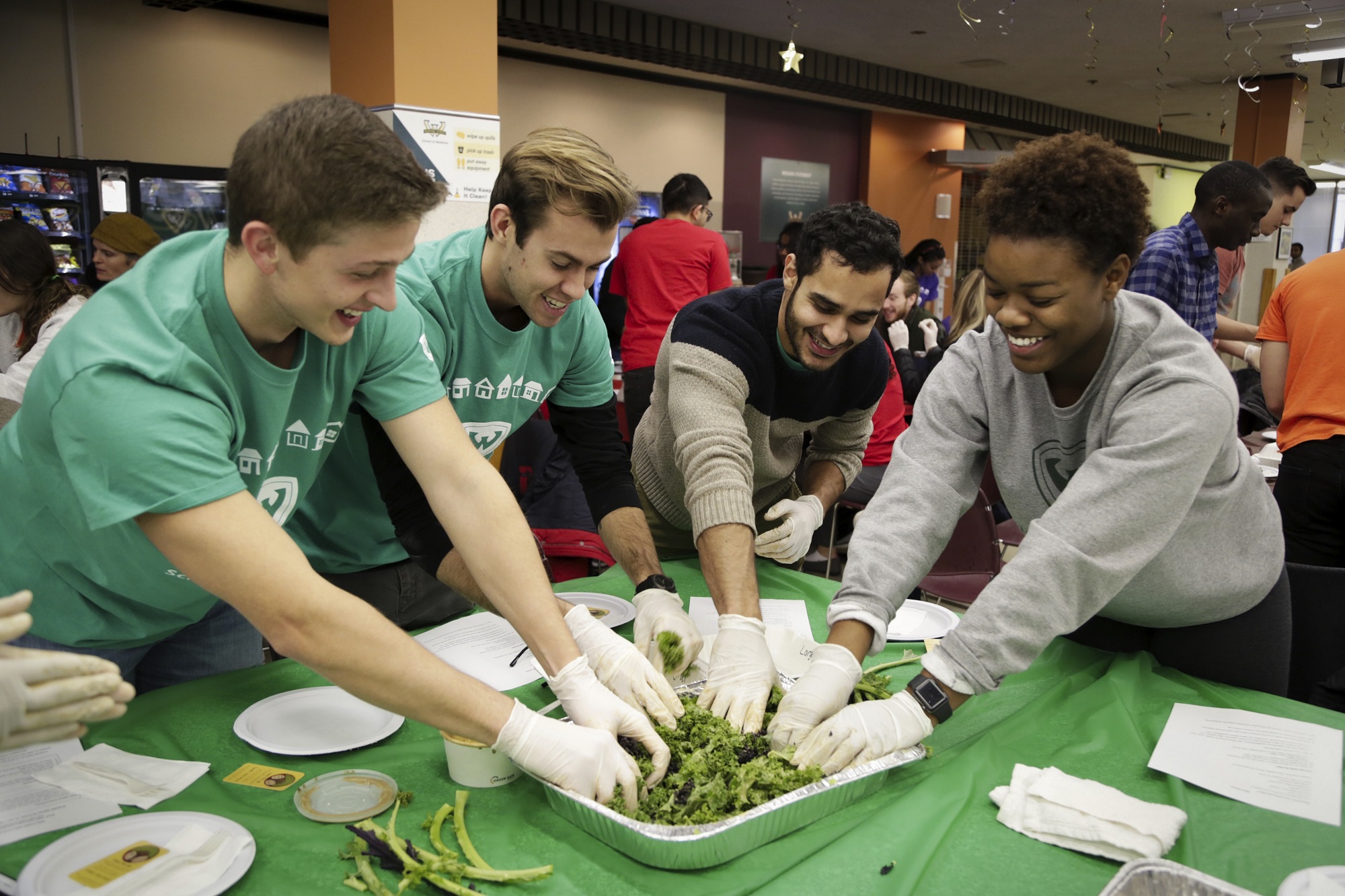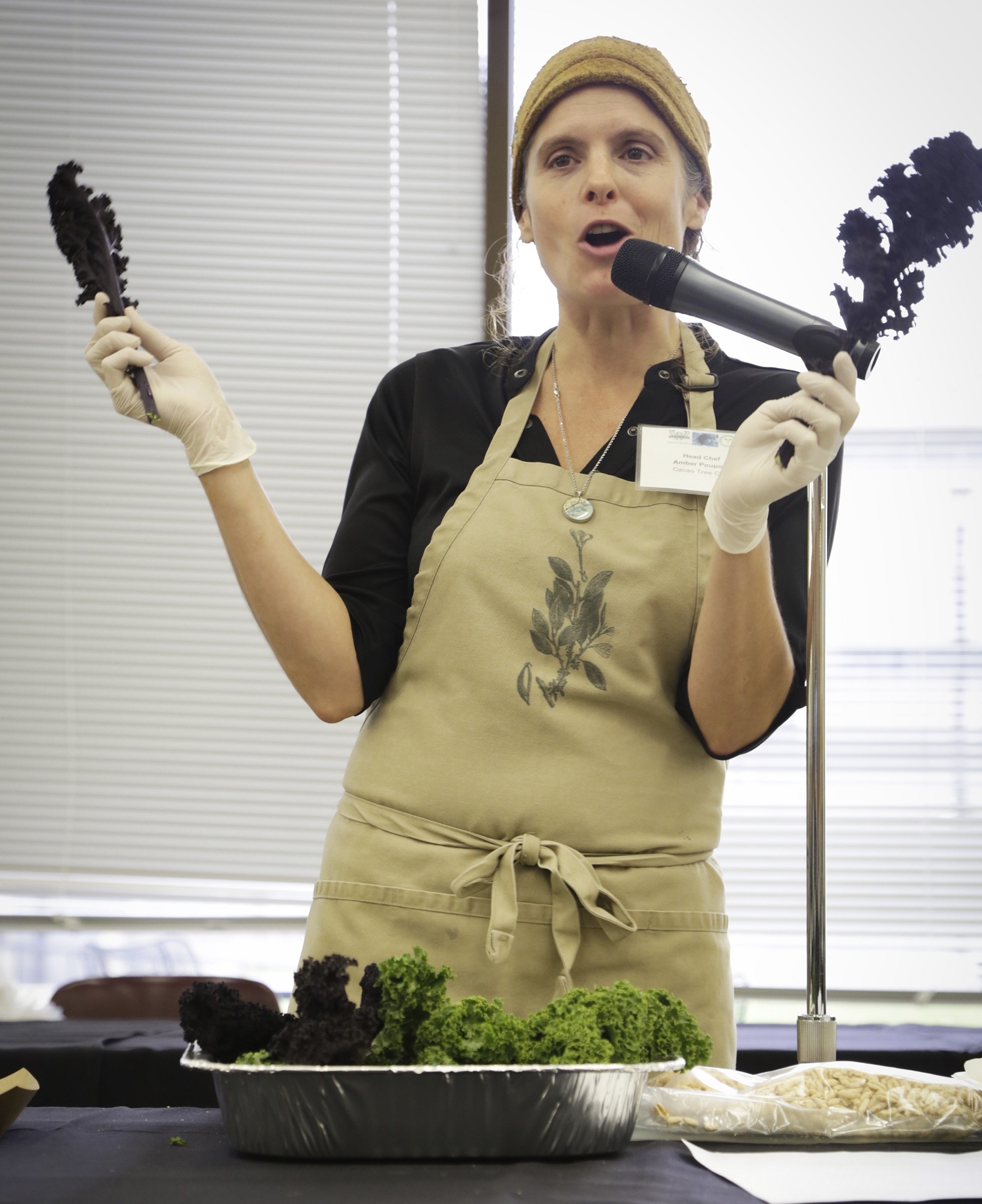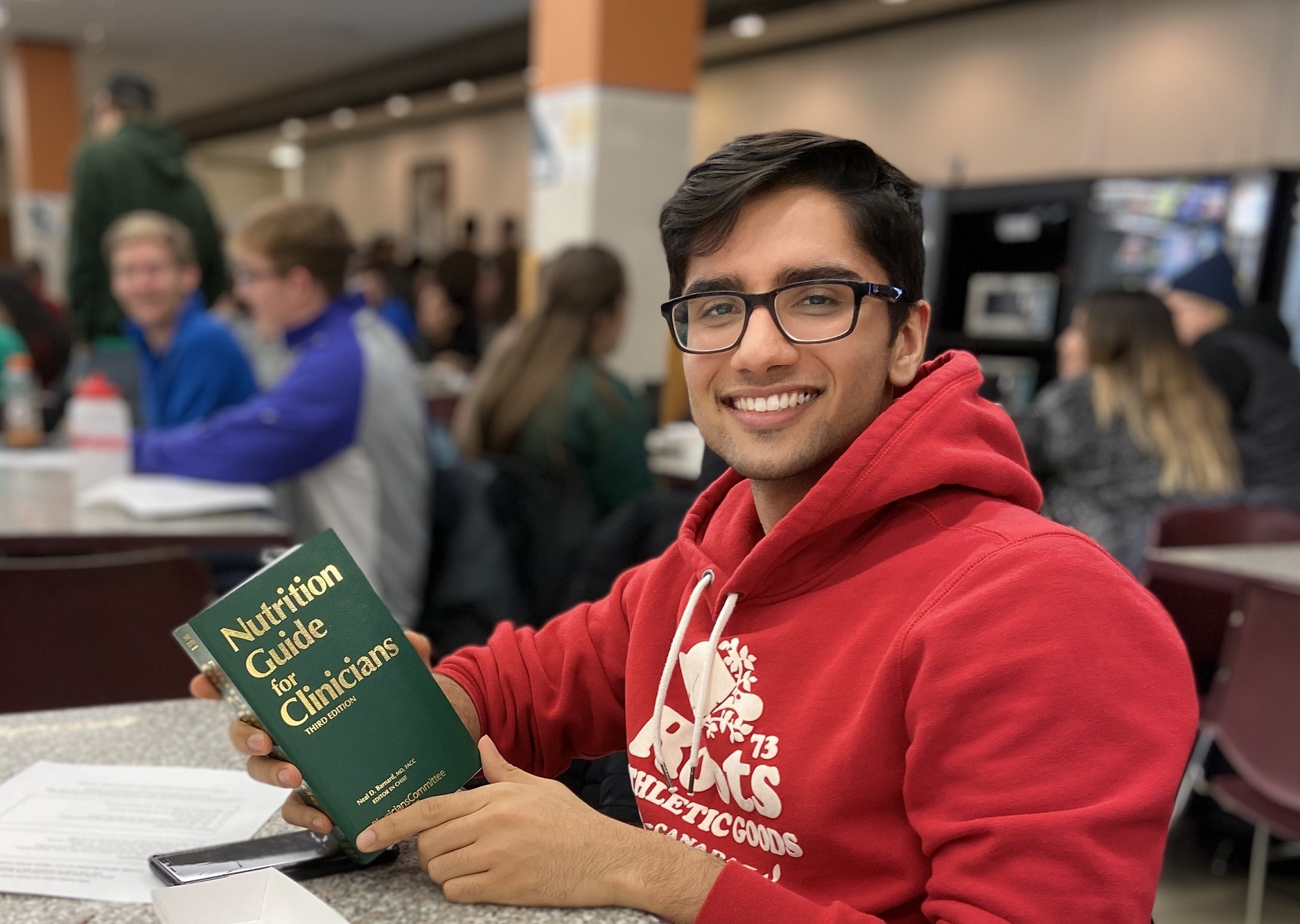Freshmen medical students get a taste of plant-based medicine
Kale. Chickpeas. Tahini. Dates.
Those were just a few of the ingredients in a Nov. 7 class held for the nearly 300 freshmen of the Wayne State University School of Medicine.

The topic was plant-based nutrition, and the new curriculum initiative – equal parts cooking demonstrations, hands-on recipe making and clinical testimonials from patients – is possibly the first of its kind at any of the nation’s medical schools.
“Most deaths in the United States are preventable and are related to nutrition. Diet is a major cause of death and disability, yet the standard medical education curriculum has little to no emphasis on diet, and almost no medical schools present information on a plant-based diet,” said second-year medical student Lakshman Mulpuri, president of the Plant Based Nutrition Group student organization.
“The success of PBNG’s Plant-Based Curriculum Enhancement will have national implications for the future of clinical care and medical education. Armed with a more comprehensive understanding of plant-based nutrition, these future physicians will be better prepared to combat the devastating effects of chronic disease that millions of Americans face every year,” he added.
The half-day event, held throughout Scott Hall and the Mazurek Medical Education Commons, was organized and co-hosted by the student group, and faculty and staff of the medical school.

“The event provided an in-depth understanding of the dramatic improvements in health and quality of life every patient has experienced when switching to a plant-based diet,” Mulpuri said. “We as a population are not doomed to suffer the debilitating and painful consequences of an unhealthy lifestyle. Physicians and patients have the power to change, and the plant-based curriculum enhancement facilitates this transformation.”
The curriculum day included panel discussions and an immersive cooking demonstration, providing students with “a better understanding of the humanistic value that lifestyle medicine can have,” he said.
The curriculum also aligns with the first-year medical students’ overall educational experience.
“The session complements what they are learning in basic sciences and provides additional ways to view how they can keep people healthy,” said Nakia Allen, M.D., a pediatrician and director of the Population, Patient, Physician and Professionalism course.

As part of the class, health care professionals and patients from Michigan and Ohio who follow a plant-based diet shared their individual stories of struggle and triumph, from facing chronic disease to earnest discussion about the patient experience.
“This was a great event and opportunity for students to see and understand other aspects of wellness can be through diet,” said Detroit-based participating physician Gwendolyn Graddy-Dansby, M.D., who specializes in geriatric medicine. “The group that I sat with was energized. We talked about how they would apply this to patient care, and discussed the importance of understanding how social determinants of health, such as ‘food islands,’ impact health. Eastern medicine and Western medicine are partnering more and more, and the exposure to different diets and ways to prepare food for health was good for students.”
Six local chefs also participated, providing students with recipes and ingredients that students then made in the cafeteria. Chef Amber Poupore, founder of the Cacao Tree Café in Royal Oak, has been attending “lunch and learn” sessions at WSU for four years. She believes it is her life’s mission to educate people about how beneficial a plant-based diet can be, especially as a form of treatment.
“Students were more receptive than I anticipated, and there was a lot of positive feedback from them,” she said.
Organizers hope to integrate the curriculum enhancement into future medical student class years.
“We think it would be particularly helpful teaching students how to counsel patients on improving their nutritional intake, so they can be ready for their clinical years. It is better to have a conversation than avoid it at altogether. We hope to have a nutritional assessment tool and will be providing additional evidence and basic science relevance in the coming weeks,” Mulpuri said.